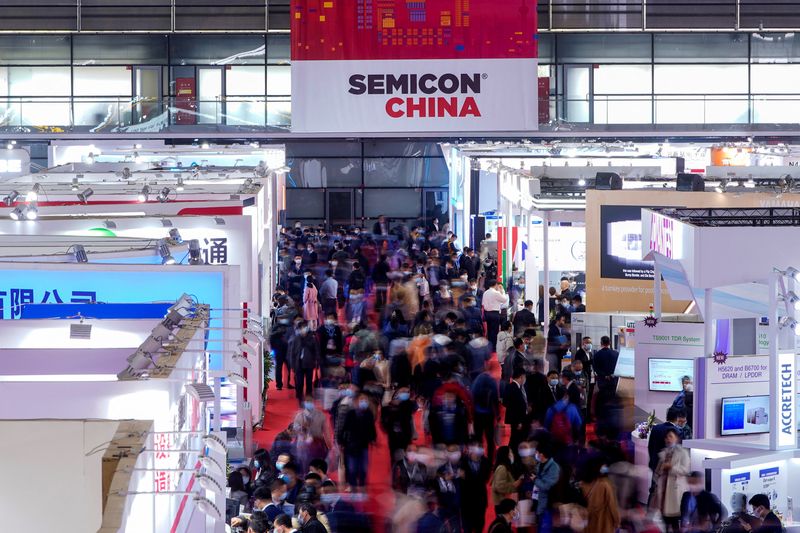By Karen Freifeld
(Reuters) - A chip industry group is warning that if U.S. allies do not adopt curbs on semiconductor manufacturing equipment to China that are comparable to U.S. controls, they will not be effective.
The warning came after news of an agreement by the Netherlands and Japan to curb chipmaking exports to China to align with rules the Biden Administration imposed in October. Details of the deal have not been made public.
SEMI, which represents the semiconductor and electronics manufacturing supply chain, said it had a shared interest in strengthening U.S. national security and welcomed the agreement with Japan and the Netherlands.
However, in a lengthy comment dated Jan. 31 on the October regulations, the group expressed concern that the allies' curbs would not be nearly as restrictive as the U.S. controls.
Even if Japan, the Netherlands and other allies adopt restrictions on specific tools, SEMI said, they will be "largely ineffective" unless international partners agree to broader controls on Chinese fabrication facilities, or fabs, that produce advanced chips. SEMI also said allies need to restrict their engineers and others from supporting China's high-end fabs.
If the allies' controls are not as strong, the United States should grant licenses for more equipment to go to Chinese customers that are not tied to the military, SEMI said, after factoring in foreign availability.
The U.S. rules restrict shipments of certain chipmaking tools to China. They also effectively bar China's advanced chipmaking factories from receiving any American technology, and keep Americans from supporting the fabs. The U.S. created the rules in an effort to slow Beijing's technological and military advances.
Without the additional restrictions, advanced semiconductor production in China "will still be able to occur with existing equipment, Chinese-made equipment, and the other uncontrolled items with the benefit of know-how and services non-U.S. persons can provide," SEMI wrote.
It noted that U.S. equipment companies' share of the Chinese market has eroded for the past two years, as Chinese companies anticipated the new curbs. The erosion sped up since October, it said, with some firms reportedly experienced a 20% decline in market share in recent months.
"These lost sales are destined for firms from countries that are not bound" by the new rules, SEMI said, adding that unilateral controls will divert billions of dollars in sales that would have gone to U.S. companies to competitors.

The U.S. Department of Commerce, which issued the October rules and has been working with allies, had no immediate comment.
SEMI has over 2,500 members worldwide, including leading U.S. equipment makers Lam Research and Applied Materials (NASDAQ:AMAT).